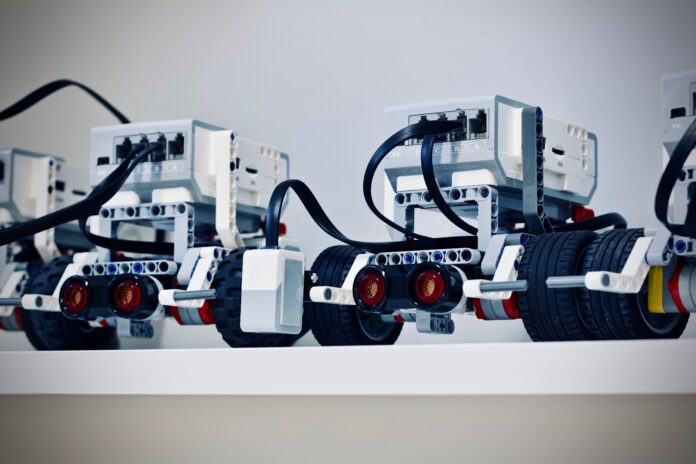Robotics is a fascinating and rapidly evolving field that combines various branches of science, engineering, and technology to design, build, and program robots. These machines are designed to perform tasks autonomously or with human assistance, making them incredibly versatile and useful in numerous industries and applications. From manufacturing and healthcare to exploration and entertainment, robotics has transformed the way we live and work. In this comprehensive overview, we will delve into the fundamental aspects of robotics, exploring its history, components, applications, and potential future developments.
1. Definition: Robotics is the interdisciplinary field that focuses on the design, development, operation, and use of robots. A robot is a programmable machine that can carry out a variety of tasks autonomously or under human control.
2. History: The origins of robotics can be traced back to ancient times, with early mechanical inventions and automata. However, the modern era of robotics began in the 20th century, with significant contributions from pioneers such as Isaac Asimov, George Devol, and Joseph Engelberger.
3. Components: A typical robot consists of several key components, including a mechanical structure or body, sensors, actuators, power supply, and a control system. The mechanical structure provides the physical framework for the robot, while sensors enable it to perceive and interact with its environment. Actuators are responsible for the robot’s movement and manipulation abilities, and the control system coordinates and regulates the robot’s behavior.
4. Robot Types: Robots come in various forms, each designed for specific purposes. Industrial robots are widely used in manufacturing processes to perform repetitive tasks, while humanoid robots resemble the human body and are often used in research and entertainment. Other types include mobile robots, collaborative robots (cobots), and unmanned aerial vehicles (UAVs), among many others.
5. Applications: Robotics has found applications in numerous industries and fields. In manufacturing, robots enhance efficiency and productivity by performing tasks like assembly, welding, and packaging. In healthcare, robots assist in surgeries, rehabilitation, and elderly care. They are also utilized in exploration, space missions, agriculture, and even entertainment, where they can be seen in theme parks or as characters in movies.
6. Artificial Intelligence (AI) in Robotics: AI plays a crucial role in modern robotics by enabling robots to perceive, reason, and make decisions. Machine learning algorithms empower robots to learn from data and improve their performance over time. This integration of AI and robotics has opened new possibilities for adaptive and intelligent machines.
7. Ethical Considerations: As robotics technology advances, ethical questions arise concerning the impact of robots on the workforce, privacy, and safety. Society must address these concerns and establish guidelines and regulations to ensure responsible and beneficial use of robots.
8. Human-Robot Interaction: Human-robot interaction (HRI) focuses on designing interfaces and interaction modalities that enable effective communication and collaboration between humans and robots. This field encompasses aspects like speech recognition, gesture recognition, and natural language processing, allowing humans to interact with robots intuitively.
9. Future Developments: The future of robotics holds exciting prospects. Advancements in materials, sensors, AI, and machine learning will lead to more capable and versatile robots. Collaborative robots will continue to gain popularity, working alongside humans in shared workspaces. Additionally, the emergence of swarm robotics, soft robotics, and bio-inspired robotics will bring new paradigms and expand the possibilities of robotic applications.
10. Educational Opportunities: Robotics offers numerous educational opportunities, from university programs and online courses to robotics competitions and workshops. Students interested in robotics can pursue degrees in robotics engineering, computer science, electrical engineering, or related fields to acquire the necessary skills and knowledge.
Robotics is an interdisciplinary field that encompasses the design, development, and use of robots. Its applications span across industries, and the integration of AI has enabled robots to become more intelligent and adaptable. As robotics continues to advance, it is essential to address ethical considerations and explore the potential of human-robot interaction. The future of robotics holds promise with the emergence of new technologies and the expansion of educational opportunities. Robotics is transforming the world we live in and will undoubtedly shape the future in numerous ways.
One of the most exciting aspects of robotics is the potential for future developments. As technology continues to advance, robotics is poised to play an increasingly prominent role in various sectors. Advancements in materials science, such as the development of lightweight and durable materials, will enhance the capabilities of robots, allowing them to perform tasks more efficiently and effectively. Similarly, improvements in sensor technology will enable robots to have better perception and understanding of their surroundings, making them more adept at navigating complex environments and interacting with objects and humans.
Artificial intelligence and machine learning will continue to be key drivers in the field of robotics. As algorithms become more sophisticated, robots will become increasingly intelligent and capable of learning from their experiences. This will result in robots that can adapt to new situations, solve complex problems, and even anticipate human needs and preferences. The integration of AI with robotics will also contribute to the development of robots that can communicate and collaborate seamlessly with humans, opening up new possibilities for human-robot teamwork in various domains.
In addition to advancements in technology, there is a growing focus on ethical considerations in robotics. As robots become more integrated into our daily lives and workspaces, it is crucial to address concerns regarding job displacement, privacy, and safety. Ensuring responsible and ethical use of robotics technology will require the development of guidelines, regulations, and standards that govern the design, deployment, and operation of robots. Ethical considerations should also encompass issues such as bias in AI algorithms, transparency in decision-making processes, and accountability for robot actions.
Human-robot interaction (HRI) is another area of great importance in robotics. Designing intuitive and seamless interfaces between humans and robots is crucial for effective collaboration. Advances in speech recognition, gesture recognition, and natural language processing will facilitate more natural and efficient communication with robots. Researchers are exploring ways to enhance HRI by developing robots that can understand and respond to human emotions, enabling them to provide more personalized and empathetic interactions. This field of study holds great potential for creating robots that can seamlessly integrate into our daily lives and assist us in various tasks.
As we look to the future, the field of robotics presents exciting opportunities for educational growth. Robotics competitions, workshops, and online courses are becoming increasingly accessible, allowing students to learn about robotics and gain hands-on experience in building and programming robots. Universities offer specialized programs in robotics engineering, computer science, and related fields, preparing the next generation of robotics professionals. The multidisciplinary nature of robotics opens up avenues for collaboration between different disciplines, fostering innovation and driving advancements in the field.
In conclusion, the world of robotics is continuously evolving and expanding, offering tremendous potential for innovation and transformation in various industries. Advancements in materials, sensors, AI, and human-robot interaction will shape the future of robotics, enabling robots to become more capable, intelligent, and intuitive. However, it is crucial to address ethical considerations and establish guidelines to ensure the responsible and beneficial use of robotics technology. Through educational opportunities and collaborative efforts, we can unlock the full potential of robotics and leverage its capabilities to improve our lives and society as a whole.

















